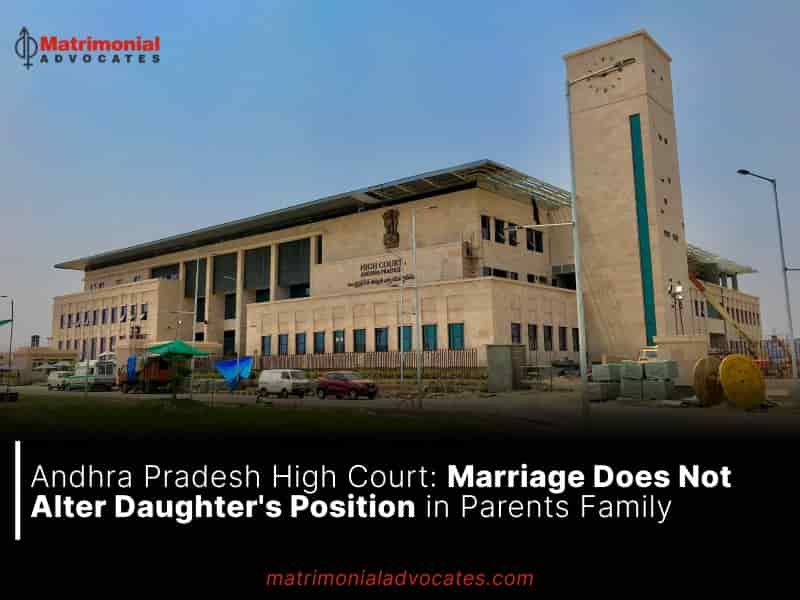
The Court criticised a 1999 State policy that extended different treatment to sons and daughters when it came to compassionate appointments, depending on whether the daughter was married.
The Andhra Pradesh High Court recently highlighted that daughters remain permanent members of their parents’ family, irrespective of their marital status.
Justice K. Manmadha Rao asserted that a daughter’s marriage does not terminate her affiliation with her parents’ family.
“The sons and daughters whether they are unmarried or married, they are part of the family of their parents for the entire life. Just because the daughter got married, saying that she is not a member of her parents’ family is nothing but (atrocious). Because of her marriage, the daughter would not cease her status as a member of the family of her parents,” the Court said in its October 18 ruling.
The Court made this statement while evaluating a State policy that treated sons and daughters differently concerning compassionate appointments (jobs given to family members of deceased government employees), depending on whether the daughter was married.
Just because the daughter got married, saying that she is not a member of her parents’ family is nothing but (atrocious).
Andhra Pradesh High Court
A petition was filed with the Court challenging the denial of a compassionate appointment for the married daughter of a man who had worked as a sweeper at a temple before his death in 2013. The executive officer, the relevant authority, asked her to provide a copy of her divorce certificate, as she had applied for the compassionate appointment on the grounds that her husband had abandoned her. In response, the woman stated that she could not find her husband to obtain the certificate. In 2021, she submitted a new application for a compassionate appointment to her father’s previous position as a sweeper.
After receiving no response from the authorities, she sought relief from the High Court. During the hearing, the Court discovered that a State government order from 1999 allowed for a married daughter of a deceased government employee to be appointed on compassionate grounds, provided there were no competing claims from the employee’s spouse or other children, and that the married daughter was dependent on the employee. However, the Court noted that no such conditions were imposed on married sons seeking compassionate appointments, labeling this difference as discriminatory.
“Married daughters are deemed ineligible solely because they are married. Showing discrimination toward a ‘married daughter’ for her marital status, while no such ineligibility applies to a ‘married son,’ appears arbitrary and discriminatory,” the Court said.
The Court concluded that the refusal to grant compassionate appointment to the petitioner, a married daughter, was unlawful and arbitrary. As a result, it approved the writ petition and ordered the temple authorities to appoint her as a sweeper or in another suitable role, effective from the date of her father’s death, along with all corresponding service benefits.
However, the petitioner is not entitled to claim monetary benefit, as she was not appointed to the post on the principle of ‘NO WORK – NO PAY”,” the Court clarified.





